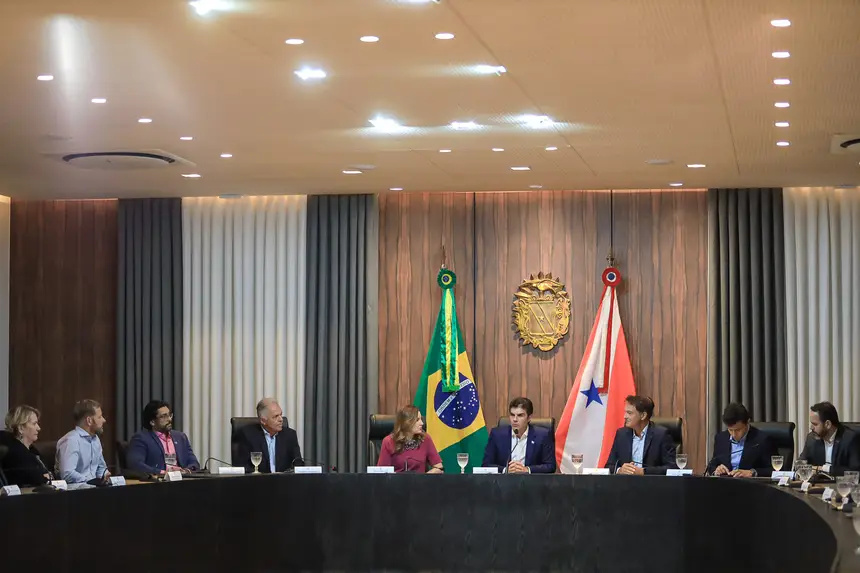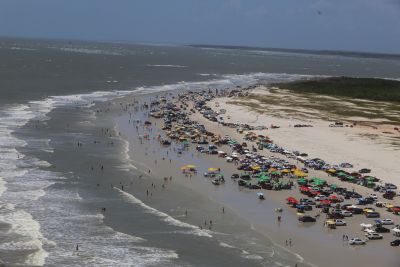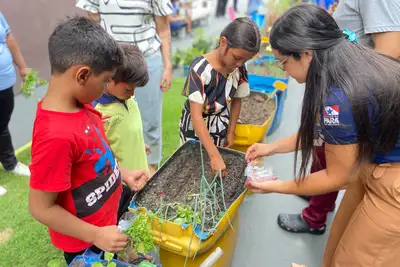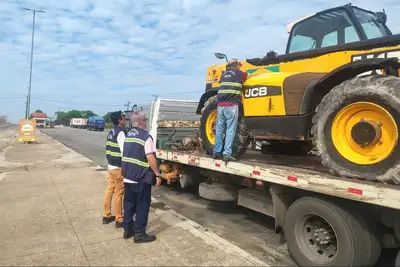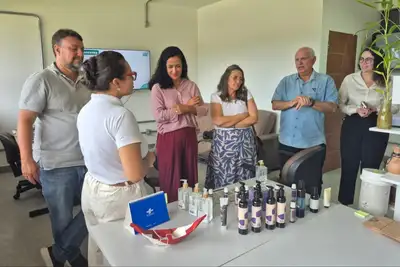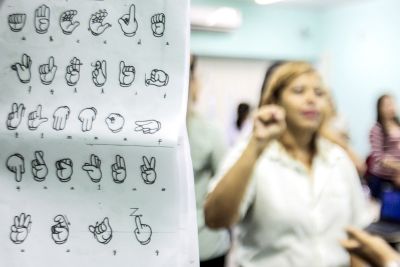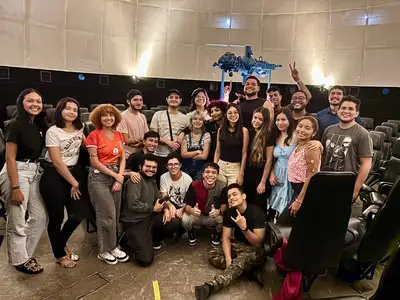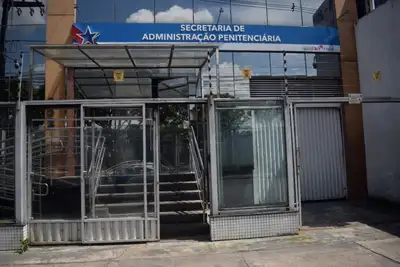Government of Pará partners with Carrefour, JBS, and slaughterhouses to strengthen sustainable livestock farming
State and companies formalize an agreement that will offer, in the case of Carrefour, certified meats on the shelves of retailers in the state starting in the second half of this year

The governor of Pará, Helder Barbalho, and representatives from the Carrefour Brazil group, Friboi Brazil, from the JBS group, and the Rio Maria and Mafrinorte slaughterhouses, signed, this Thursday (24), at the Government Palace in Belém, a Term of Intent and Collaboration for the Sustainable Livestock Farming Program of Pará, a pioneering initiative aimed at strengthening responsible production in the state and combating illegal deforestation. These companies are the first signatories of the program, and the goal is to implement individual traceability of the entire Pará cattle herd – from birth to slaughter – by 2026. The event was attended by Vice Governor Hana Ghassan.
The signatories of the term commit to contributing to the advancement of the Sustainable Livestock Farming Program of Pará, which was developed as an important mechanism for combating illegal deforestation, promoting sustainable development, social well-being, and intensifying livestock farming in the state of Pará while caring for the environment.

Recognizing the relevance of the Program to enhance transparency and compliance in the livestock production chain, the companies commit to encouraging the production of traceable and deforestation-free meat, supporting the transformation of Pará's livestock farming, generating jobs, income in the countryside, and business opportunities, as well as developing efforts to inform consumers about the differentiators of traceable meat, valuing its sustainable origin and creating opportunities to promote Pará's livestock farming as a reference in responsible and conscious practices.
Governor Helder Barbalho emphasized that the cooperation reinforces the state's position, which is already prominent in agricultural production with reduced deforestation. “For us, sustainable livestock farming means benefits for the environment and for the producer. Therefore, since we established this program at COP 28 in Dubai, we have been working to ensure the traceability of the herd while providing incentives to the producer, to ensure that in this transition, in this advancement, no one is left behind. Today, Pará is ensuring the reduction of deforestation without losing its productivity. We are the state with the second largest cattle herd in Brazil and we are achieving historic rates in reducing deforestation, such as the lowest deforested area since 2019, reached last March, according to official data from the National Institute for Space Research. This proves that we are on the right track and that we will continue to advance,” highlighted the governor.
Regarding the implementation of the program, Helder Barbalho added: “This, initially, of course, was not simple, it is a new process, it is a process of cultural change, change of habit, change of practice, seen by some as unnecessary, as an excess of preciousness or even by a few, as a measure of weakening our competitiveness, it is the opposite, in fact, that we were planting the seed so that we could be more competitive, so that we could anticipate the rules that the market would establish for national and international trade,” said the governor.

Collaboration - The Carrefour Brazil Group will be the only Brazilian retailer to integrate the initiative and will have its stores in the state as the first to sell products with the program's certification, starting in the second half of this year.
For the program, the Carrefour Brazil Group will invest R$ 10 million, which will be allocated to the acquisition of electronic tags and chips that will feed the Individual Cattle Traceability System of Pará (SRBIPA), launched in 2024, and also to support small and medium rural producers in the state, with free advisory for farm regularization, in a collaborative and multi-funded effort between the Group and JBS. The companies also committed to assisting in engaging other actors in the chain, such as associations, banks, other slaughterhouses, and public sector entities.
“The protection of the planet and biodiversity is one of the pillars of the Carrefour Brazil Group's strategy, in addition to creating mechanisms for traceability and monitoring of the meat we acquire from our suppliers, we understand that we have a role and a responsibility in high-impact collaborative agendas for the protection of biodiversity,” explains Stéphane Maquaire, CEO of Carrefour Brazil Group.
The company's investment is part of the Forest Fund, an initiative that allocates R$ 50 million to projects aimed at combating deforestation by strengthening sociobiodiversity initiatives.
According to the latest Municipal Livestock Research (PPM) 2023, released by the Brazilian Institute of Geography and Statistics (IBGE), the State of Pará houses the second largest cattle herd in the country, with about 25 million animals, and comprises a significant portion of the Legal Amazon. The traceability policy will be essential to meet the growing demands of international markets, such as the European Union and China, which require robust proof of origin and sustainability of products.
“JBS is part of a coalition led by the government of Pará, in partnership with NGOs such as TNC (The Nature Conservancy) and other actors, to drive an ambitious traceability and low-carbon livestock farming plan in the region. Through investments in traceability programs, environmental regularization, and commercial requalification of small producers, the company has contributed to the evolution of livestock farming in the State,” said Bruno Brainer, operations director of Friboi in the North region.
The Rio Maria slaughterhouse, with a strong presence in southern Pará, is also part of the group and plays a relevant role in implementing the program. The company is already participating in a pilot project for animal traceability, which uses technology to ensure the origin and environmental compliance of supplying farms. Its adherence to the Sustainable Livestock Farming Program of Pará reinforces its commitment to responsible productive practices and to building a more transparent and sustainable supply chain.
“We understand that traceability is a requirement of the future, and participating in this transformation alongside the Government of Pará and other partners shows that it is possible to produce responsibly and add value to the meat and leather chain,” says Roberto Paulinelli, president of the Rio Maria slaughterhouse.


